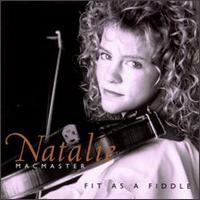This article needs additional citations for verification .(November 2021) |
| Fit as a Fiddle | ||||
|---|---|---|---|---|
 | ||||
| Studio album by | ||||
| Released | 1993 | |||
| Studio | CBC Studio H, Halifax, Nova Scotia | |||
| Genre | Celtic | |||
| Length | 53:42 | |||
| Label | Rounder Records | |||
| Producer | Glenn Meisner and Dave MacIsaac | |||
| Natalie MacMaster chronology | ||||
| ||||
| Review scores | |
|---|---|
| Source | Rating |
| AllMusic | |
Fit as a Fiddle is an album by Natalie MacMaster. [2] [3] It was reissued by Rounder Records in 1997. [4]